Latest questions:
Trending questions:
Hot questions:
Data and instinct
You can't be creative if you don't have a starting point based on data, but just data is not enough if you are not creative. You need to develop and follow your instinct. Do you usually start from data or bet on your creativity and instinct?
7 answers
I think instinct come first for me. Based on my creative idea I would discover the data I need. As a final goal, without data your creativity is just like a dummy. But, to start with I would like to have a free soul.
I tend to go with instinct, which stems from accumulated data stored somewhere in my grey matter. I then see what data is available and if there isn't any -or the data source is unreliable, not applicable or otherwise deemed unfit- I will research the topic myself to see if my assumptions are indeed correct.
Primary Instinct secondary backup with data. Through instinct one could create a new trend, a viral popularity be a leader in the current trend/industry/market or field. Data on the other hand provide evidence of the success of others where one could follow their path to gain success too but the achievement might not be as significant as one instinct if one nailed it! Instant popularity, instant domination of the field/market.
"Humans make irrational choices, particularly when faced with deeply complicated, multi-attribute decisions." Daniel Kahneman and Amos Tversky, pioneers of behavioral economics, argued that humans rely on heuristics, metal shortcuts that lead them to arrive at judgements based on only a thin slice of the overall problem.
Take blackjack, for example, where most players will decline to hit on a 16 against a dealer’s 7. Mathematically, the better play is to take another card. Staying means a 74% chance of losing, compared to 67.5% when hitting. Just because it feels right, doesn’t mean it is right.
Experience, intuition and emotion are tremendously important. And quantifiable. Once quantified, you can learn about them, and figure out what matters and how much.
There is always a right answer. The trick is becoming as good as possible at finding it. The key is using data in combination with intuition. When Ted Sarandos (Netflix) was asked about data and intuition, he said, “In practice, it’s probably a 70%/30% mix. 70% is the data, and 30% is judgement. But the 30% needs to be on top, if that makes sense.”
'Without data, you're just another person with an opinion' (W. Edwards Deming).
You may start with an idea (hypothesis) and then look for information, which may confirm or non-confirm this. On the other hand, data-analysts may find statistical patterns in the data-sets and then come up with a logical theory to explain the identified patterns. This would be the typical Human-AI-Team, where the AI identifies statistical patterns, but to logical explain it, a human is required.
The gut and the brain are joined together. Use them equally and you'll be OK.
OMG DUDE: That was "a facetious remark".
Brain death is a legal definition of death that refers to the irreversible end of all brain activity (including involuntary activity necessary to sustain life) due to total necrosis of the cerebral neurons following loss of blood flow and oxygenation. It should not be confused with a persistent vegetative state.
CHEESE!

64 months ago








